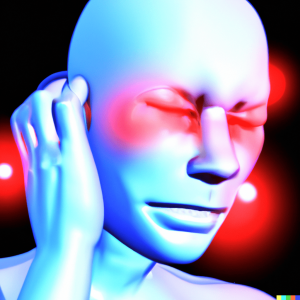
Kathy James DALL·E 2023-01-01 17.23.49
As I read back through the posts that I have written over the years following my stroke, I recognize that was not a passive recipient of treatment.
In my initial posts I weaved the tapestry of my recovery, postulating and problem solving, often getting the answers wrong.
What I needed right from the very beginning was someone to sit me down and tell me what to expect. This simply didn’t happen, and stroke turned my life upside down. Through all of this I have become my own clinical reasoner and problem solver.
I have written previously that as a consequence of suffering a thalamic stroke, I now have central post stroke pain (CPSP), this condition affects about 12% of those affected by stroke. It is also known as thalamic syndrome or thalamic pain syndrome, it is a neurological disorder and is extremely difficult to treat. CPSP occurs when there is damage to an area of the brain that carries lots of sensory pathways, no particular type of stroke causes CPSP, rather strokes in particular areas of the brain do.
Chronic pain clearly affects the body, but it also affects emotions, relationships, and the mind. It can cause anxiety and depression which can make pain worse. It locks you out of life as you knew it, and you lose the sense of who you are.
Once I accepted that it (CPSP) was here to stay, I have sought out as much knowledge about what is occurring in my brain, and why my brain is generating the pain response in my body.
I strengthened my resolve not to go down ‘the rabbit hole’, fight tooth and nail, although I must admit I do feel fragile at times.
Sensory overload wreaks havoc and causes pain flares, its almost like my brain has no filter, but as best as I can muster I am trying to treat pain as background noise.
It is easier said than done, to pick yourself up and get on with life.
It takes time to adjust, to recover, this is a lesson that took me a long time to understand and accept. It will come as no surprise to those who know me that I have found it very hard to be a passive patient.
Once the CPSP diagnosis was confirmed, I did not become the patient who just took the pills. I keep on searching for answers to all the questions that were difficult to get answered.
Pain, is it all in your head?
Pain is a complex sensation that is experienced both physically and emotionally. While it is true the perception of pain is processed in the brain, the pain itself is not “all in your head”. Pain is a real, physical sensation that is triggered by actual or potential tissue damage or injury.
Pain, has been described as your brain’s assessment of keeping you safe.
I cannot emphasize enough the importance of listening to your own body enough.
When you have chronic pain you have to experiment with what works for you.
 I have approached my pain as a learning experience, I am open to the concept that with education and support change can occur.
I have approached my pain as a learning experience, I am open to the concept that with education and support change can occur.
